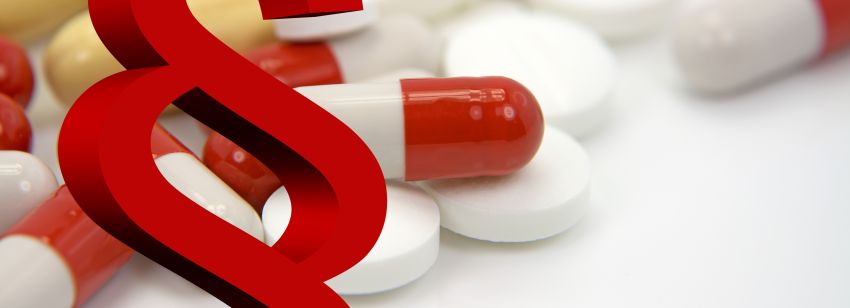GSAV – Special position of Orphan Drugs is softened
The law for more safety in the provision of medicinal products (Gesetz für mehr Sicherheit in der Arzneimittelversorgung/ GSAV) was passed faster than expected by the German Bundesrat and introduced some major changes to the Early Benefit Assessment of Orphan Drugs.
The GSAV has been passed on June 28th by the German Bundesrat and will probably enter into force this month. Overarching aim of the law is – as given away by the name – to increase the safety and therefore quality of drugs available on the German market. Reason for this are several scandals which went public during the last couple of years e.g. sales of contaminated Valsartan or a pharmacist who sold incorrectly dosed cytostatic preparations. As a reaction to those scandals the GSAV amongst others strengthens the supervisory powers of the responsible agencies and increases the inspection frequencies. Next to these quality and safety related changes the GSAV introduced some changes which impact the Benefit Assessment especially of Orphan Drugs (definition - see below). SKC indicated possible changes in the legislation in a blog post on May 07th - now those speculations become reality.
By the European Medicines Agency approved Orphan Drugs enjoy a special status, which amongst others impacts the Early Benefit Assessment in line with §35a SGB V. Even though they have to undergo the Benefit Assessment as all other innovative medicinal products in Germany, they automatically receive an additional benefit by the agency. This has to do with the fact, that per definition no established therapy alternative exists and therefore no comparison against an appropriate comparative therapy has to be performed for Orphan Drugs.
But in case an Orphan Drug reaches the revenue threshold of 50 Mio. Euro within 12 calendar months (on the German market) the special status becomes void and the pharmaceutical company will be prompted to submit a complete dossier. This threshold is newly defined by the GSAV as so far only out-patient statutory contractual medical care was relevant for the 50 Mio. Euro threshold. With the new law in addition prescriptions settled by Private Health Insurances as well as in-patient hospital care will be of relevance. Overall, this might lead to an increased amount of Orphan Drugs who will reach the threshold.
Besides the newly defined revenue threshold, the GSAV introduced a new basis for the benefit assessment into §35a SGB V. The Federal Joint Committee (Gemeinsamer Bundesausschuss/ G-BA) has been authorized to request registry data, which they are obliged to check regularly (at least every 18 months). Unfortunately, Orphan Drugs are not excluded from this.
In addition, the GSAV introduced a further change which will impact the price negation procedures of Orphan Drugs: It has been added to §130b (3) SGB V that after a previously set deadline the G-BA is allowed to regularly perform the Benefit Assessment considering the available registry data. In case the newly collected data doesn't allow for the quantification of an additional benefit, the re-negotiated reimbursement value has to be lower than the previously set price. In case the G-BA notices before the deadline is expired, that no registries have been set up, won't be set up or due to other reason cannot be set up, the National Association of Statutory Health Insurance Funds (GKV-Spitzenverband) can request a reevaluation of the reimbursement price at any time. Also in this case has the reevaluated price to be lower than the previously valid one.
How the G-BA will translate the changes into the Rules of Procedure and which other areas will be impacted by the GSAV will be reported by SKC.
Due to numerous Market Access and Pricing Projects in the area of Orphan Drugs SKC has a vast experience and expertise. We are looking forward to your request.
Written by Prof. Matthias P. Schönermark, M.D., Ph.D., managing director and Fenja Presuhn, M.A. Medizinmanagement
Regulation (EC) No 141/2000 (Orphan Regulation):
Article 3
Criteria for designation
1. A medicinal product shall be designated as an orphan medicinal product if its sponsor can establish:
(a) that it is intended for the diagnosis, prevention or treatment of a life-threatening or chronically debilitating condition affecting not more than five in 10 thousand persons in the Community when the application is made, or
that it is intended for the diagnosis, prevention or treatment of a life-threatening, seriously debilitating or serious and chronic condition in the Community and that without incentives it is unlikely that the marketing of the medicinal product in the Community would generate sufficient return to justify the necessary investment;
and
(b) that there exists no satisfactory method of diagnosis, prevention or treatment of the condition in question that has been authorised in the Community or, if such method exists, that the medicinal product will be of significant benefit to those affected by that condition.
Sources:
Article 3 (1). Regulation (EC) No 141/2000 of the European Parliament and of the Council of 16 December 1999 on orphan medicinal products.
Beschlussempfehlung und Bericht. Ausschuss für Gesundheit. Entwurf eines Gesetzes für mehr Sicherheit in der Arzneimittelversorgung vom 05.06.2019. Drucksache 19/10681.
Gesetzentwurf der Bundesregierung. Entwurf eines Gesetzes für mehr Sicherheit in der Arzneimittelversorgung vom 27.03.2019. Drucksache 19/8753.
About the author

Founder and Managing Director
Fax: +49 511 64 68 14 18
